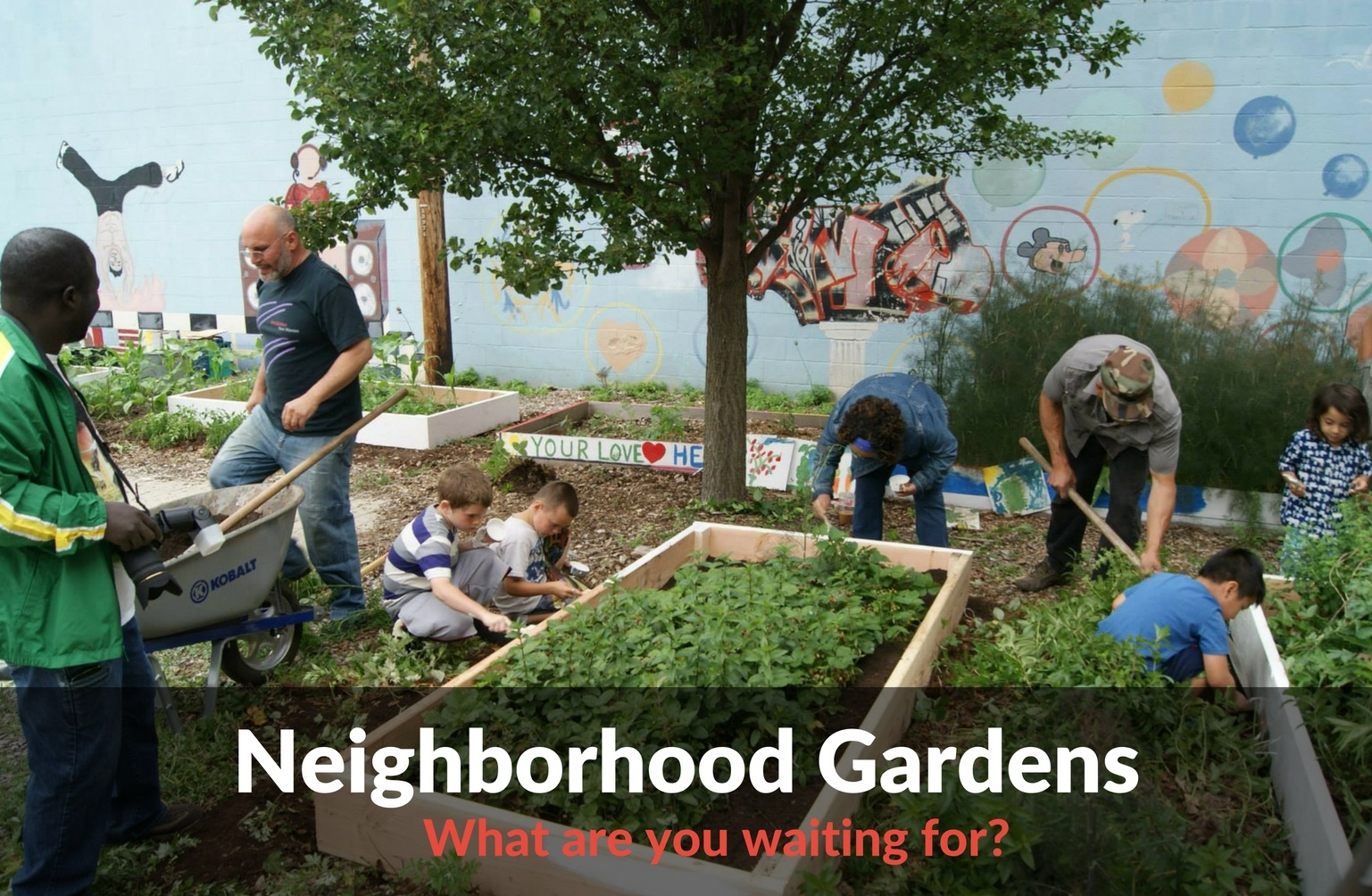Some people have land in their backyard, but others live in townhouses and apartments where land to grow a garden may be scarce. Even those folks with backyards may have soil that’s not ideal for a garden or there may be too many trees and not enough sunshine. This is where neighborhood gardens can be a great choice. These are local areas where people can share a plot of gardening land, meet and talk with other gardeners, learn about gardening, share seeds and plants, and revel in the beauty of all their crops.
A neighborhood garden enables single individuals or families to cultivate different plants such as tomatoes, lettuce, and squash, that they might not have been able to at their residence. Many of these gardens are located in areas where there is maximum sun exposure. This makes it ideal for growing not only edible items, but flowers as well.
Don’t worry about bringing tools, because most neighborhood gardens have a shed stocked for all members to use. In the shed, members will find all the essentials, including wheelbarrows, rakes, shovels, buckets, gloves, and watering cans. Because every member of the neighborhood garden has chores, having the tools in one location makes it easier.
All neighborhood gardens allow those involved to swap different items. Some gardens hold a seed swap, either annually or biannually. Gardeners are able to trade their seeds for seeds from other gardeners. Aside from seeds, some gardeners swap different grown items, including vegetables, herbs, and flowers.
When there are numerous people contributing to the garden, composting becomes an easier task to complete. Weeds and garden scraps that remain unused can go to the compost pile. The plant matter gets broken down naturally, adding nutrients to the current soil. Due to the fact that a neighborhood garden houses a large number of gardeners, the required labor to maintain the compost pile and keep it aerated occurs on a normal basis. This is because everyone is involved in the process.
Yes, there are many who enjoy the tranquil, quit task of tending to their garden. However, many others like to be social and have fun while tending to their garden - this is provided by a neighborhood garden. Members can exchange stories, gardening tips, and just spend the day outdoors with other individuals who enjoy gardening.
Because of the recent move away from the use of chemical pesticides due to their harmful effects, a large number of neighborhood gardens are going organic. The organic route has proven to be very successful for those neighborhood gardens that have done it. Even though there are a host of challenges involved with tending an organic garden, such as pests and weeds, due to the large membership of a neighborhood garden, it becomes easy to handle this challenge and grow a successful organic neighborhood garden.
So what are you waiting for? Sign up and look for a neighborhood garden in your area!
